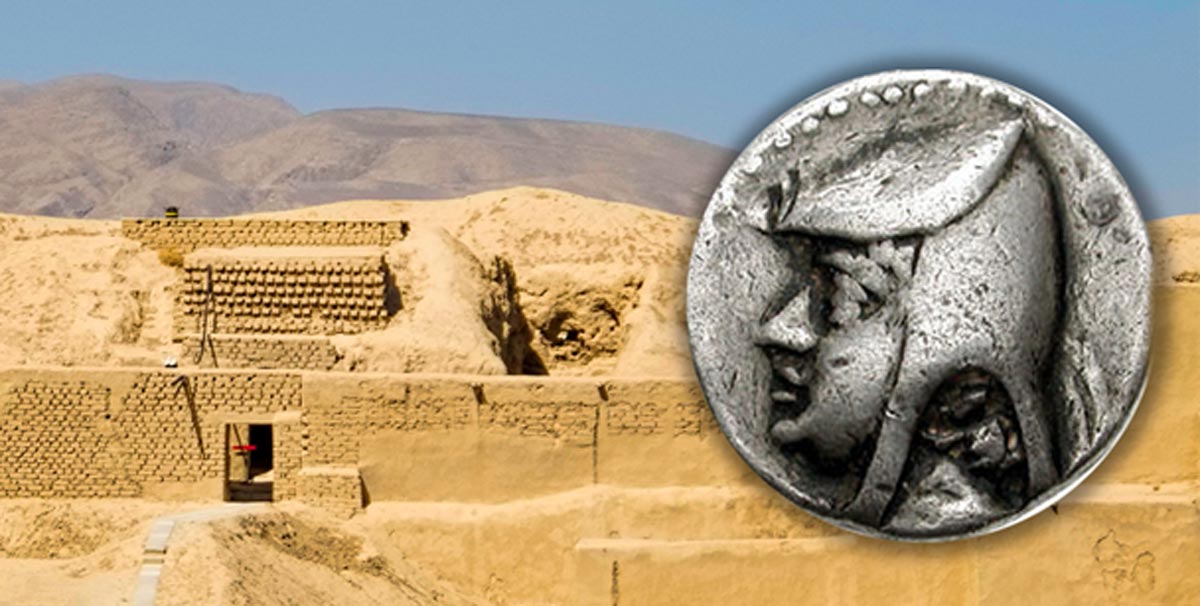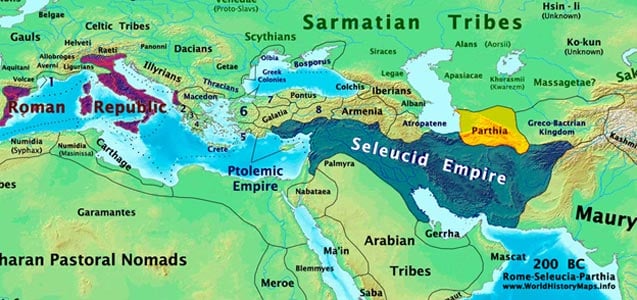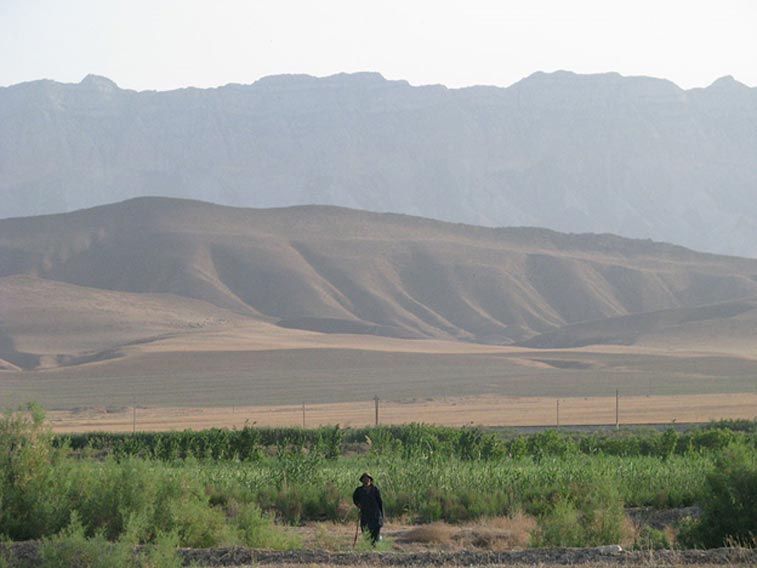
The Rise of the Arsacid Dynasty: Medical Mysteries and Rightful Heirs – Part I
Arsaces’ historic invasion of Parthia was a process.
Before Arsaces I, King and founder of the Arsacid dynasty, and his brother, Tiridates captured Parthia, they appeared to be residing in the province previous to the appointment of Andragoras as satrap, or governor. Andragoras gained this position due to Arsaces and Tiridates killing the last two previous satraps by the names of Pherekles and Agathokles.
Information concerning the death of Pherekles by Arsaces is scant. Greek historian Arrian of Nicomedia states it was “to avenge an insult offered to one of them.” This insult provoked a rebellion, which led to the death of the satrap. While nothing more is provided, this small amount of info says much.

Roman, Seleucid, and Parthian Empires in 200 BC. (CC BY-SA 3.0)
During this period, Arsaces probably controlled the Kopet Dagh mountain range running east-west across the northern edge of the Iranian plateau that bordered the Seleucid province of Parthia. Being in such close proximity, it would not be unreasonable to think that Arsaces’ sphere of influence extended somewhat into the province of Parthia. If so, Arsaces possibly held a considerable amount of influence among the locals, who may have provided him with tribute for his protection services.
Furthermore, in both attacks on the province of Parthia, it would not be unreasonable to assume that Arsaces confiscated some territory within the Parthian satrapy.

View on the Kopetdag mountains from the Ahal plain, Turkmenistan. (CC BY-SA 3.0)
As mentioned, an insult caused Arsaces to strike, but the type of insult is unknown, leaving one to speculate.




